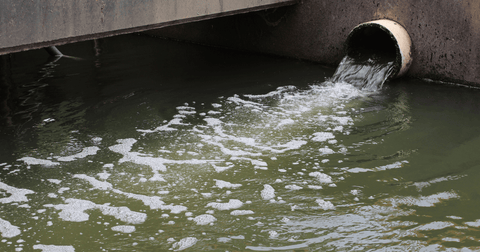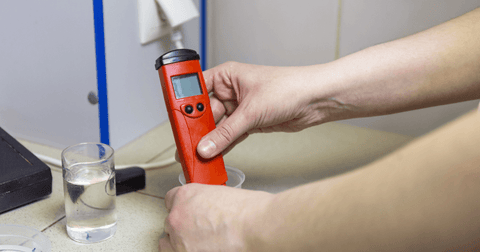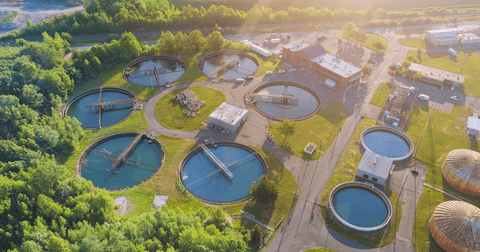Wastewater Cleanup Made Easy with Ammonia Probes
Wastewater management has been a significant environmental concern for decades. Ensuring that our waterways remain clean and safe is essential for both human and ecosystem health. In this quest for cleaner water, technology has played a vital role.
One remarkable innovation that has simplified wastewater cleanup is the ammonia probe. In this blog post we'll explore how ammonia probes are revolutionizing wastewater management by monitoring ammonium pH levels on the ammonia pH scale.
The Role of Ammonia Probes in Wastewater Management
Ammonia Probe Wastewater Technology

Ammonia probes are cutting-edge devices designed to monitor the levels of ammonia in wastewater. They are instrumental in detecting and quantifying the presence of ammonium ions (NH4+) in water which is crucial for assessing water quality. These probes operate based on the principles of chemistry and use ammonia pH scale to provide accurate measurements.
Understanding Ammonium pH on the Ammonia pH scale

The ammonia pH scale is a logarithmic scale that measures the pH level of ammonium ions in water. It ranges from 0-14, with 7 being neutral. Values below 7 indicate acidic conditions, while values above 7 indicate alkaline conditions.
Monitoring ammonium pH is essential because it directly correlates with the presence of ammonia in water. Higher ammonium pH levels signify increased ammonia concentration, which can be harmful to aquatic life and the environment.
Advantages of Using Ammonia Probes
Real-Time Monitoring

One of the significant advantages of using ammonia probes in wastewater management is real-time monitoring. These probes can provide continuous data on ammonia pH levels, allowing wastewater treatment facilities to respond promptly to any spikes in ammonia concentration. This real-time information is invaluable for preventing environmental disasters and maintaining regulatory compliance.
Precision and Accuracy

Ammonia probes offer unmatched precision and accuracy in measuring ammonium pH levels. Traditional testing methods often involve time-consuming and error-prone manual tests. In contrast, ammonia probes instant and reliable results, reducing the margin for error and ensuring data integrity.
Cost-Effective Solutions

Implementing ammonia probes can lead to cost savings in wastewater treatment operations. By optimizing chemical dosing and treatment processes based on real-time data, facilities can reduce the use of chemicals and energy, resulting in substantial cost reductions over time.
Applications of Ammonia Probes in Wastewater Management
Industrial Wastewater Treatment
Ammonia probes are widely used in material wastewater treatment plants to monitor and control ammonia levels. Industries that discharge wastewater with high ammonia concentrations, such as food processing and petrochemical plants, benefit significantly from these probes. By ensuring compliance with regulatory limits, they avoid fines and reduce their environmental footprint.
Municipal Wastewater Treatment
Municipal wastewater treatment facilities also rely on ammonia probes to maintain water quality standards. These probes help municipalities meet discharge limits and protect aquatic ecosystems downstream. Additionally, by optimizing treatment processes, they can reduce operational costs and minimize the environmental impact of wastewater treatment.
Aquaculture and Fish Farming

Ammonia probes find applications in aquaculture and fish farming. Ensuring the right ammonia levels in water is critical for the health of aquatic organisms. Ammonia probes enable fish farmers to monitor water quality and adjust conditions accordingly, leading to healthier fish populations and increased yields.
The Future of Wastewater Management with Ammonia Probes
The future of wastewater management looks promising with the continued advancement of ammonia probe technology. Researchers and engineers are continually working on improving probe sensitivity, reducing maintenance requirements, and enhancing data integration with existing wastewater treatment systems.
Conclusion
In the ongoing battle to protect our waterways, ammonia probes are invaluable tools that have made wastewater cleanup easier and more effective. These devices, which utilize the ammonia pH scale to monitor ammonia pH levels, offer real-time data, precision, and cost-effective solutions for wastewater treatment.
From industrial facilities to municipal treatment plants and aquaculture operations, ammonia probes play a crucial role in safeguarding our environment. As we look to the future, it's clear that ammonia probes will continue to play a pivotal role in wastewater management.
Their ability to provide accurate data in real-time is a game-changer for the industry. What are your thoughts on the role of ammonia probes in wastewater cleanup? Have you had any experience with them? We'd love to hear from you!